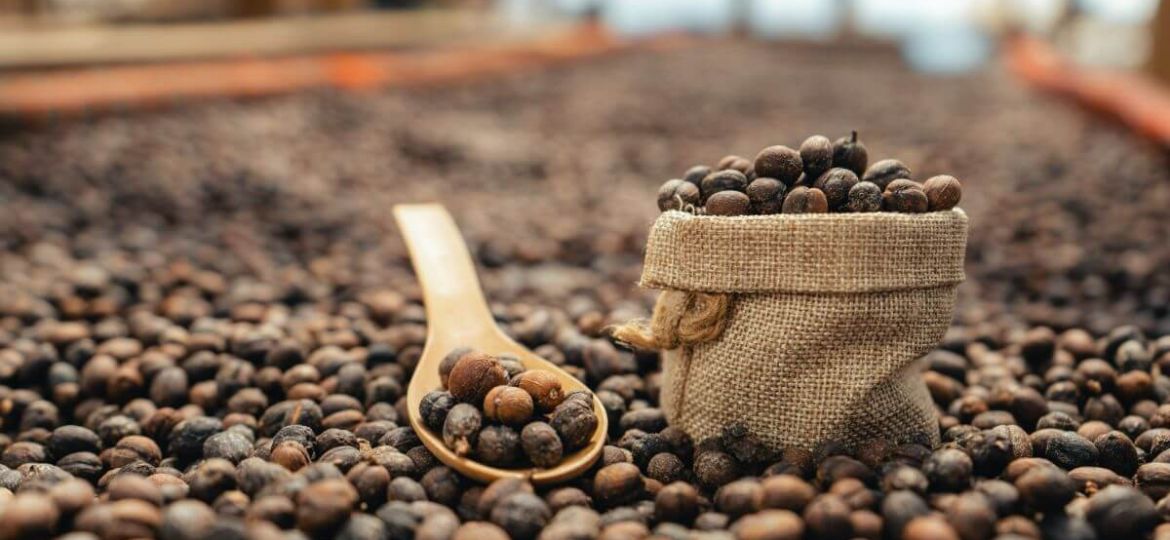
Low Acid Coffee provide the comfort and ritual of coffee without the typical acidity that can lead to stomach discomfort for some coffee lovers. As people increasingly seek out digestive-friendly options, the market for low-acid coffee alternatives is flourishing, offering a range of choices from innovative coffee blends to delightful non-coffee beverages.
Key Takeaways
- Health Benefits: Low-acid coffee alternatives are not just easier on the stomach; they often come packed with additional health perks, like antioxidants and anti-inflammatory properties.
- Popular Low-Acid Coffee Brands: A variety of brands have risen to prominence, offering coffee that’s specially crafted to reduce acidity, ensuring a smoother sip without compromising on flavor.
- Brewing Methods: The way you brew your coffee can influence its acidity. Techniques like cold brewing can significantly lower the acid levels in your coffee.
- Non-Coffee Alternatives: For those looking to branch out, there’s a world of low-acid options beyond traditional coffee, including herbal teas, chicory coffee, and even golden milk, each offering unique flavors and health benefits.
Popular Low-Acid Coffee Brands
For those seeking a gentler cup of joe, several coffee brands have emerged as champions in the low-acid coffee space, each with its unique offerings.
Lifeboost Coffee stands out for its meticulous approach to producing low-acid coffee. By sourcing shade-grown, organic beans and utilizing a single-origin approach, Lifeboost ensures a pure, smooth coffee experience that’s kind on the stomach. Their beans are not just easy to digest; they’re also packed with flavor, allowing coffee enthusiasts to indulge without compromise.
Volcanica Coffee takes pride in its exotic selection of beans grown in volcanic regions, known for their natural low-acid content. The brand offers a diverse range of low-acid options, from single-origin coffees to expertly crafted blends. Volcanica’s commitment to small-batch roasting ensures that each cup delivers peak freshness and a rich, satisfying taste.
Purity Coffee is another brand that has made waves with its focus on health and wellness. Their low-acid beans are rigorously tested for toxins and are roasted to perfection to enhance antioxidant levels. Purity Coffee’s offerings are not just gentle on the digestive system; they’re also designed to boost overall well-being, making every sip a step toward a healthier lifestyle.
Non-Coffee Low-Acid Alternatives
For those exploring beyond traditional coffee, the realm of low-acid alternatives offers a refreshing variety, each with its own unique flavor profile and health benefits.
Mushroom Coffee Blends are an intriguing innovation in the coffee world, combining the rich, earthy flavors of mushrooms with traditional coffee taste. These blends often feature adaptogenic mushrooms like reishi or chaga, known for their immune-boosting and stress-reducing properties. The result is a cup that not only perks you up but also supports overall wellness.
Chicory Coffee is a caffeine-free alternative that mimics the deep, roasted flavor of coffee without the acidity. Made from the roots of the chicory plant, this beverage has a long history as a coffee substitute. Chicory is also rich in inulin, a type of prebiotic fiber, supporting digestive health and adding a subtly sweet nuance to its robust taste.
Chai Tea offers a spicy and warming alternative, brimming with flavors of cinnamon, cardamom, and ginger. Beyond its enticing aroma and taste, chai tea is celebrated for its digestive benefits and antioxidant properties. This beverage can be a soothing choice, perfect for those who want a flavorful yet low-acid drink.
Golden Milk, often referred to as a turmeric latte, is a vibrant concoction rooted in Ayurvedic traditions. Turmeric’s anti-inflammatory qualities are at the heart of this drink, complemented by ginger, cinnamon, and black pepper, which not only add depth of flavor but also enhance the body’s absorption of turmeric.
Kombucha, a fermented tea, stands out for its tangy flavor and gut-friendly benefits. The fermentation process not only reduces the tea’s natural acidity but also enriches it with probiotics, aiding in digestion and promoting a healthy gut microbiome. Plus, kombucha comes in an array of flavors, catering to a wide range of taste preferences.
Impact of Brewing Methods on Acidity
The way you brew your coffee can significantly influence its acidity. Two popular methods, cold brew and French press, offer distinct experiences, particularly in terms of acidity.
Cold Brew Coffee is renowned for its low acidity. The cold brewing process, which involves steeping coffee grounds in cold water for an extended period (typically 12-24 hours), extracts fewer acids compared to hot brewing methods. The result is a smooth, mellow cup of coffee that’s gentle on the stomach and rich in flavor. For those sensitive to acid, cold brew can be a game-changer, providing the coffee kick without the bite.
French Press Coffee, on the other hand, offers a different approach. While not as low in acidity as cold brew, the French press method allows for full immersion and a robust extraction of coffee flavors. The key to reducing acidity with a French press is to control the brewing time and the grind size. A coarser grind and a brewing time of about four minutes can help minimize the extraction of acidic compounds, yielding a richer and less acidic cup.
Tips for Brewing Low-Acid Coffee at Home
- Choose the Right Beans: Start with low-acid coffee beans. Brands that specialize in low-acid coffee can make a significant difference right from the start.
- Mind the Water Temperature: Using slightly cooler water (around 195°F to 205°F) can reduce acidity during the brewing process.
- Experiment with Brewing Time: Shorter brewing times can prevent excessive acid extraction. Find the sweet spot that works best for your taste preferences.
- Grind Size Matters: Opt for a coarser grind, especially when using a French press, to prevent over-extraction of acidic compounds.
FAQs
How do I choose low-acid coffee?
Look for coffee labeled as low-acid or check if the brand specifies the pH level of their coffee. Opting for Arabica over Robusta beans and choosing darker roasts can also help reduce acidity.
What are the health implications of acid in coffee?
High-acid coffee can aggravate symptoms of gastrointestinal disorders like GERD and acid reflux. However, low-acid coffee alternatives can provide a more stomach-friendly option for those sensitive to acidity.
Any tips for transitioning to low-acid alternatives?
Start by mixing your regular coffee with a low-acid variety and gradually increase the proportion. Exploring non-coffee alternatives like herbal teas or chicory coffee can also offer a smooth transition.
Final Thoughts
Switching to low-acid coffee alternatives doesn’t mean compromising on flavor or your morning ritual. With a variety of options available, from innovative coffee brands to delightful non-coffee beverages, there’s something for every palate. Embracing low-acid options can lead to a more pleasant coffee experience, especially for those with digestive sensitivities.
So, why not explore the array of choices and discover a new favorite that’s kinder to your stomach? Whether it’s a smooth cold brew, a rich French press, or a spicy chai tea, the perfect low-acid brew is waiting for you.









